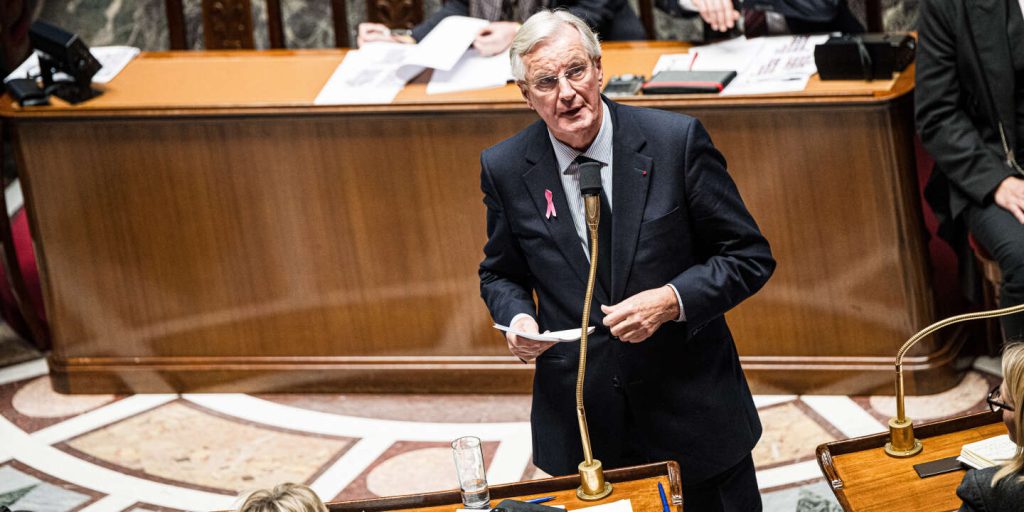One week after the Prime Minister’s general policy statement, the day was marked by the discussion and vote on the first motion of censure against the government, brought by left-wing MPs. The leader of the socialists criticized the National Rally (RN) for deciding to support the government without being a part of it. This indicates a lack of support and trust in the government’s policies from both sides of the political spectrum.
The motion of censure reflects the discontent and opposition towards the government’s actions and decisions. It signifies a critical assessment of the government’s policies and performance, and is a way for MPs to hold the government accountable for its actions. The left-wing MPs’ decision to bring the motion of censure demonstrates their dissatisfaction with the government’s approach and their desire for a change in direction.
The fact that the National Rally decided to support the government without actively participating raises questions about their motives and intentions. It suggests that they may have ulterior motives or interests in supporting the government, even though they may not fully agree with its policies. This highlights the complex and sometimes contradictory nature of political alliances and dynamics within parliament.
The debate and vote on the motion of censure are important moments in the political process, as they provide an opportunity for MPs to express their opinions and concerns about the government’s actions. It is a way for opposition parties to challenge the government and hold it accountable for its decisions. The outcome of the vote will determine the level of support and confidence in the government among MPs.
The motion of censure can have significant implications for the government’s stability and future. If the motion is successful and the government loses the vote of confidence, it may be forced to resign, leading to a political crisis and potential early elections. On the other hand, if the government survives the vote, it may strengthen its position and legitimacy, despite facing criticism and opposition from some MPs.
Overall, the discussion and vote on the motion of censure highlight the tensions and divisions within the political landscape. It is a reflection of the complex dynamics and power struggles within parliament, as different parties and MPs vie for influence and control. The outcome of the vote will have important consequences for the government and the country as a whole, shaping the direction of future policies and decisions.


